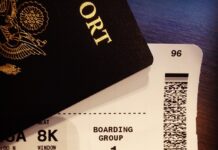The current context of delayed and lost luggage has left thousands of travelers in a difficult situation when they arrive at their destination without their luggage.
The current situation is exceptional but should not make us forget that normally 1.5% of the luggage has a problem of routing and that, according to the airline, 3 to 10% of them are never recovered. This is statistically very little, but it is a lot if you are concerned, assuming that for the passenger who finds himself in such a situation the delay rate is 100%.
And if 85% of the luggage is found in less than 24 hours, finding yourself without your belongings, even for a short time, is never pleasant and can even be very annoying.
If there is no way to prevent your suitcase from being lost (other than leaving with a carry-on bag), there are ways to minimize the inconvenience by not carrying certain things in a checked luggage.
Here is a list of things you should never put in a checked bag.
Computers and electronic devices
I’m always surprised when I hear this, but there are people who think that in order not to be overloaded in the cabin, the ideal is to put their computer in their checked luggage. A friend asked me if I recommended it to her a few weeks ago.
Putting your computer in the hold is the worst mistake for several reasons.
The first is that given the price of the device, its usefulness and what it contains, getting it back late is a real handicap and losing it is a real prejudice difficult to compensate, especially when you know that the Montreal Convention limits the amount of global compensation in case of loss to approximately 1600 euros.
The second is that given the delicacy with which luggage is handled in airports, there is a good chance that it will arrive damaged. It can be a good idea if you want your employer to finally replace your aging laptop but a very bad idea in any other circumstances.
Batteries
Here we’re a bit off topic but while talking about computers we might as well explore the subject to the end. For safety reasons it is forbidden to transport batteries in the hold
The reason? Batteries are highly flammable, especially lithium-ion batteries. If you have any doubts, look at what happened to UPS Flight 6!
Please note that even in the cabin, the number and power of the batteries you take in your hand luggage is limited.
If batteries are forbidden in the hold, what about the devices that contain them? As far as computers are concerned, they were banned at one time and then allowed again. But as I said above, this is highly inadvisable if you want your devices back in one piece. However, power banks and other electronic cigarettes are prohibited.
Laptops, cell phones, tablets, electronic books, game consoles, cameras, electronic cigarettes, etc. have no place in your checked luggage, nor do the removable or spare batteries that go with them.
Your keys
You may think that the best way to avoid losing your keys during your trip or forgetting them at the security checkpoint is to put them in your suitcase once the door of your accommodation is closed. This may be a good idea until the suitcase turns out to be permanently lost.
Your identity documents
At the beginning of the year, I saw a very annoyed passenger at the boarding gate: she had put her passport in her suitcase, left the suitcase at the “self drop off”…and had no identity document to present at the boarding gate! Carelessness or lack of common sense? I don’t know.
However, if it is embarrassing to find yourself without papers when you board, it is even more embarrassing to find yourself without a passport at your destination.
Wallet, credit card, money
Again, when you think you’ve seen everything, you discover new things every day. Yes, there are people who put wallets and credit cards in checked luggage. Maybe because they figure they won’t need them until they get to their destination and that way they’re sure not to lose them along the way?
It doesn’t matter if your suitcase is delayed or permanently lost, you’re in trouble.
Drugs
If you are undergoing treatment or are prone to attacks, it is not wise to put the said medication in the holdbecause of the risk of not being able to follow your treatment at your destination or not being able to react to an attack once you arrive or even during the flight.
Want an example? The mother of a family completely panicked in a long-haul flight when her son was having an asthma attack and she had of course put the ventolin in the hold!
Another tip: keep your prescriptions with you as well. Useful if you have to buy things on the spot and sometimes, in some countries, to justify the possession and use of certain medicines.
Jewelry and valuables
Again this may seem like common sense but… well. The risk of a lost luggage is low? So be it. The risk of it being lost is ridiculous? So be it. Mais s’il s’agit de bijoux et objets de valeur le jeu en vaut il la chandelle ?
Again, only put things in the hold that are acceptable to lose!And if you’re going to your son’s wedding on the other side of the world, take the minimum amount of jewelry with you and have it in your carry-on or on you!
It may seem counterintuitive, but that’s where they will be safest.
Besides, without even talking about jewelry, it would be ideal (and I admit that it is difficult) to put in the hold only clothes whose financial or sentimental value makes the loss acceptable.
TravelGuys’ tips
Beyond common sense and the awareness that delayed or lost luggage doesn’t just happen to others, we have only three pieces of advice to give in order to limit the risks, or at least to limit their impact.
The first is totravel only with cabin luggage. Indeed it is not always possible and it depends on a certain number of factors like the duration of the trip, the context of the trip (is it necessary to have wardrobes of different styles…), the seasons (if they are not the same at the departure and at the destination…) but we can tell you that we can leave for a week in Seoul and Beijing in summer with just a carry-on suitcase and while having a complete wardrobe
The second, if you are traveling as a couple, is tomix things in both suitcases. If one is lost, there will be the minimum necessary for both in the surviving suitcase.
The third is to have the vital minimum with you in the cabin. Difficult but possible when you travel alone, simpler with several people, to have, even if you put luggage in the hold, a small cabin suitcase with the bare minimum to last 48 hours in case your hold suitcase is delayed.
Bottom line
A delayed or lost luggage is a rare thing but when it happens to you it is a real problem, even a case of force majeure.
You have two situations to consider.
If your checked baggage is delayed, you need to be able to “survive” until you get it back. Appropriate clothing, toiletries, medication…
If it is lost, the loss of its contents must be acceptable from a financial (or even emotional) point of view and in any case not be blocking ( IDs, credit cards…).
And if the worst happens, don’t forget thatin case of delayed or lost luggage you can be compensated.
Image : baggahe packing by BublikHaus via Shutterstock















